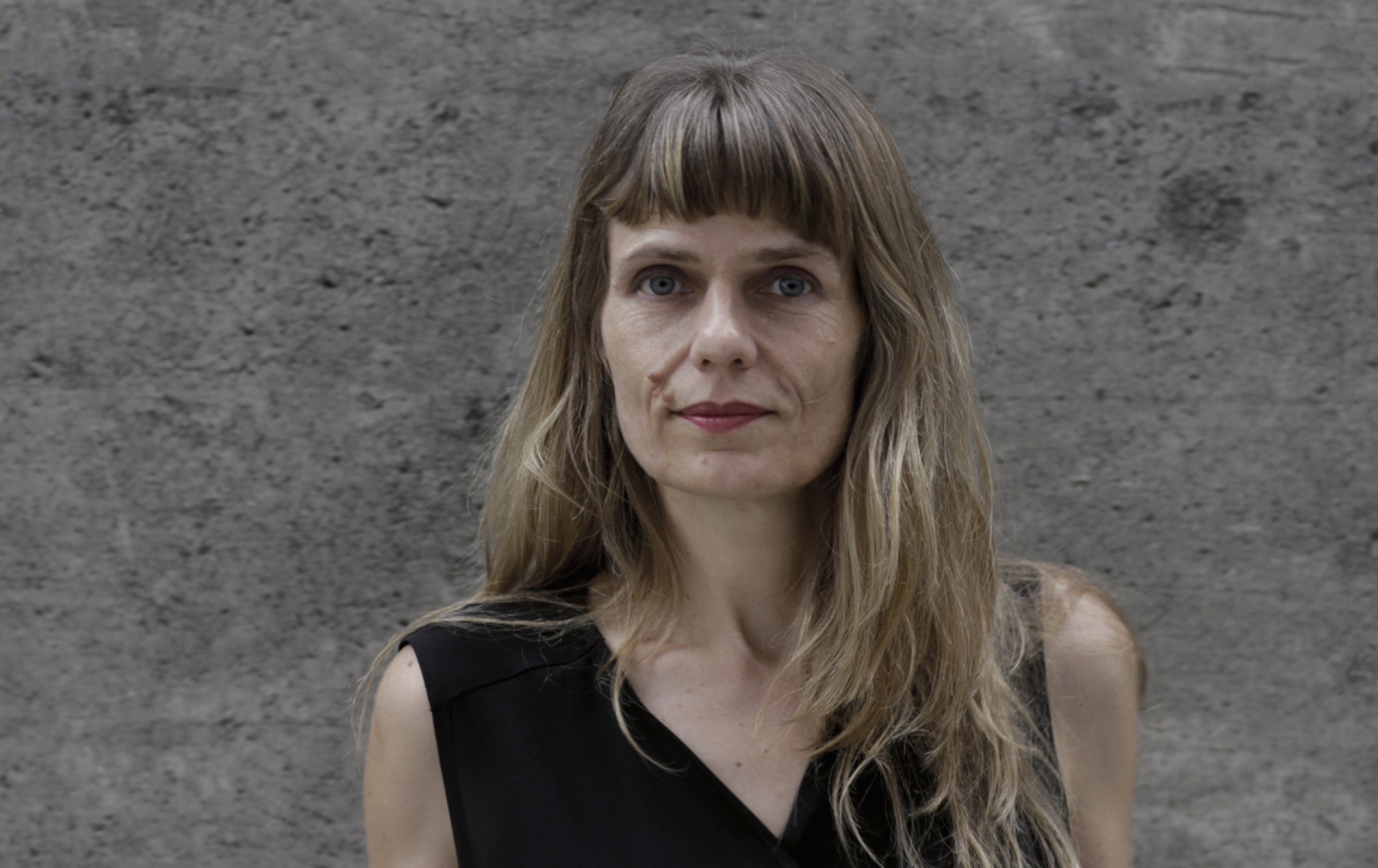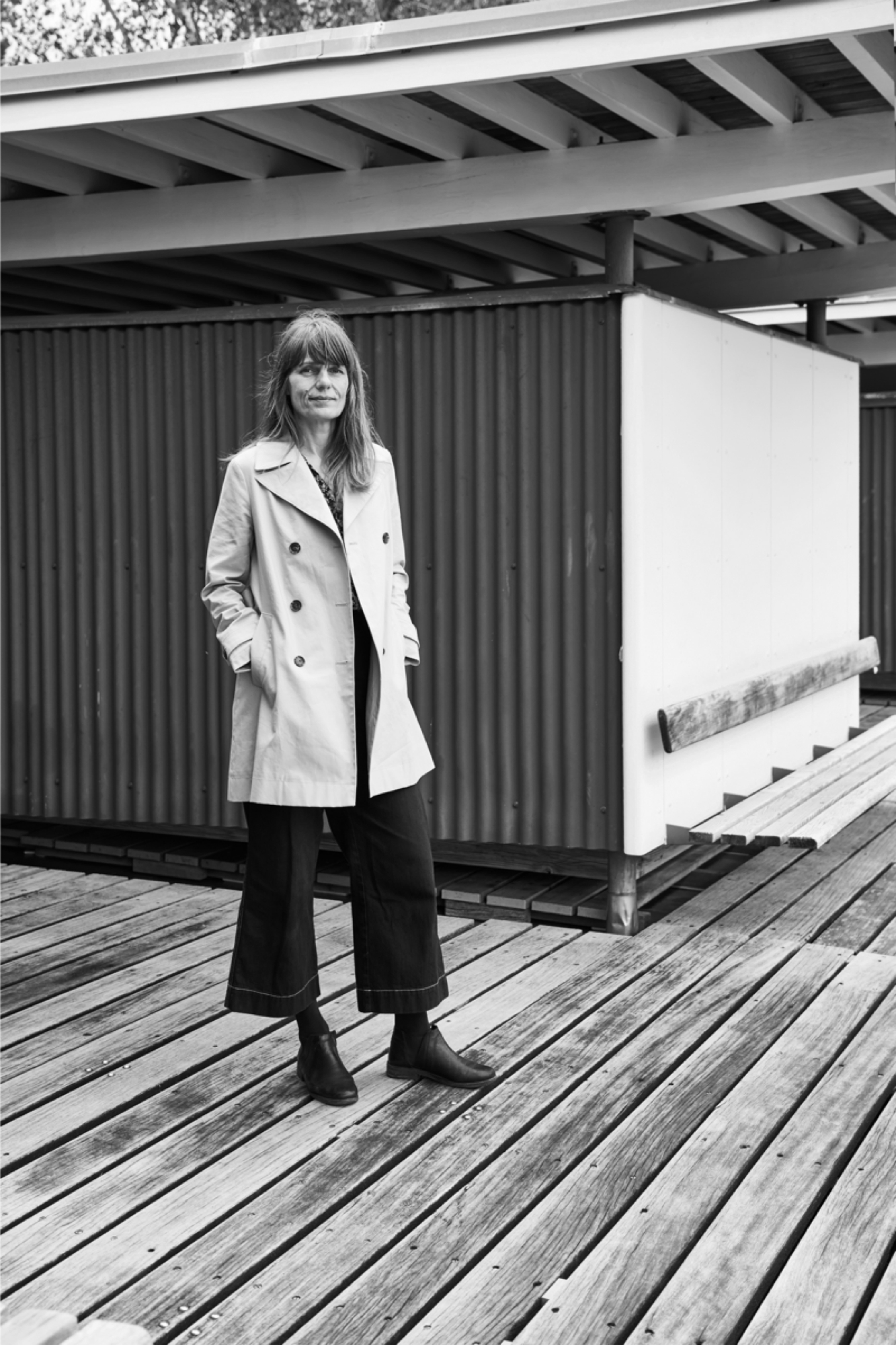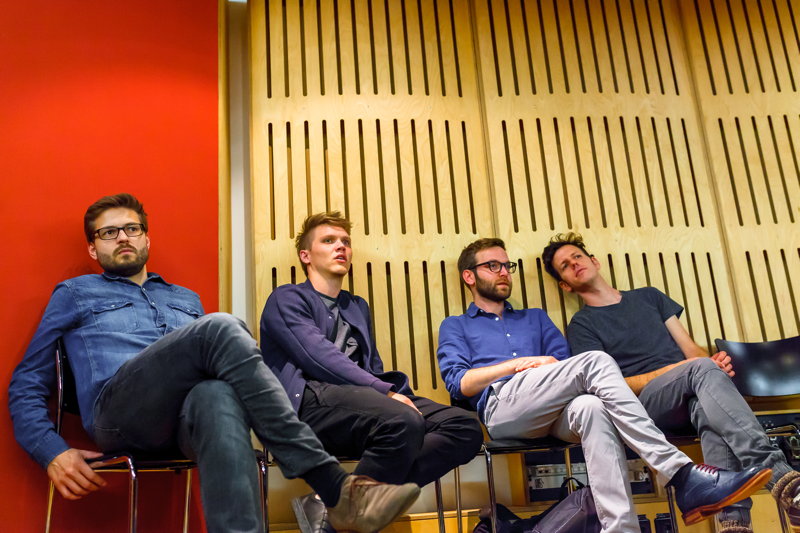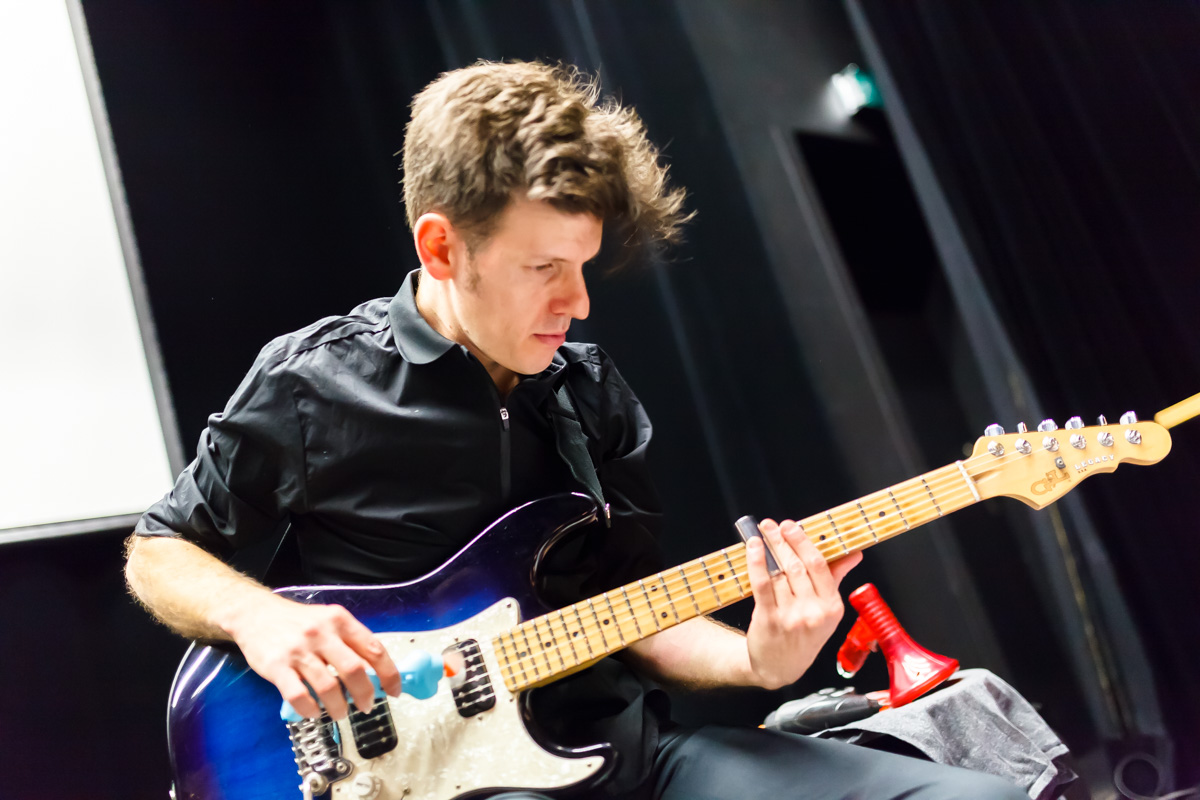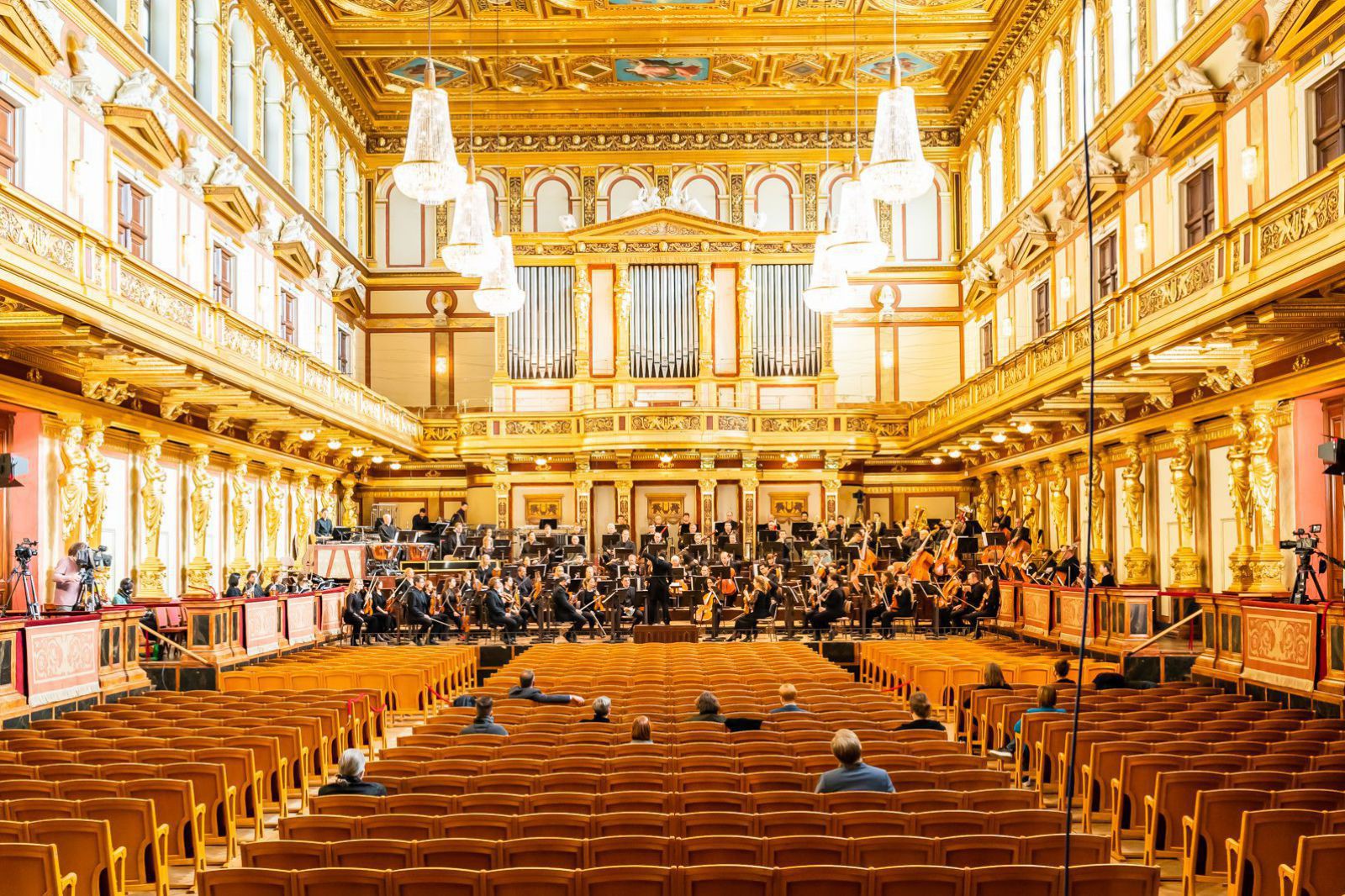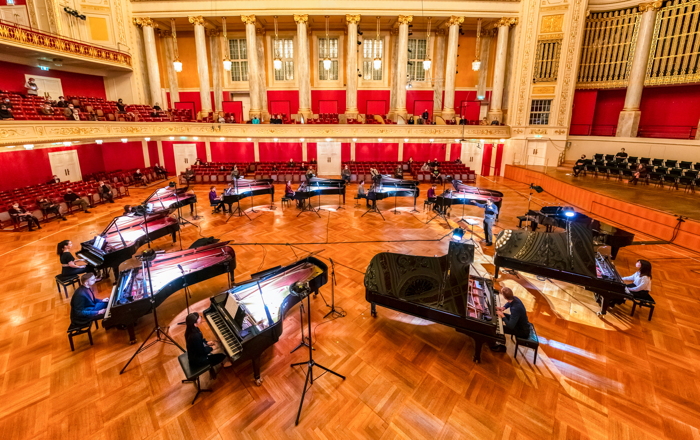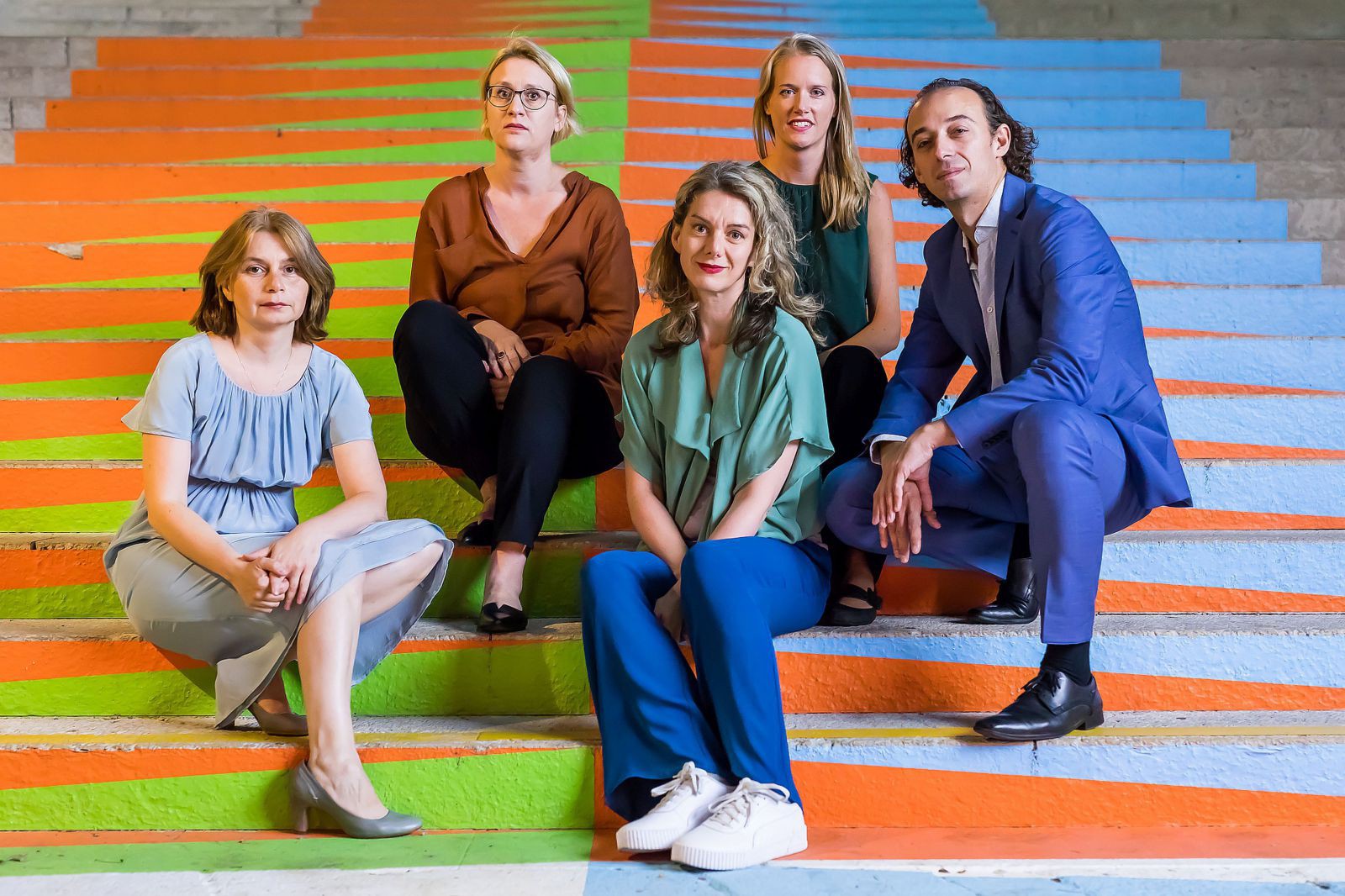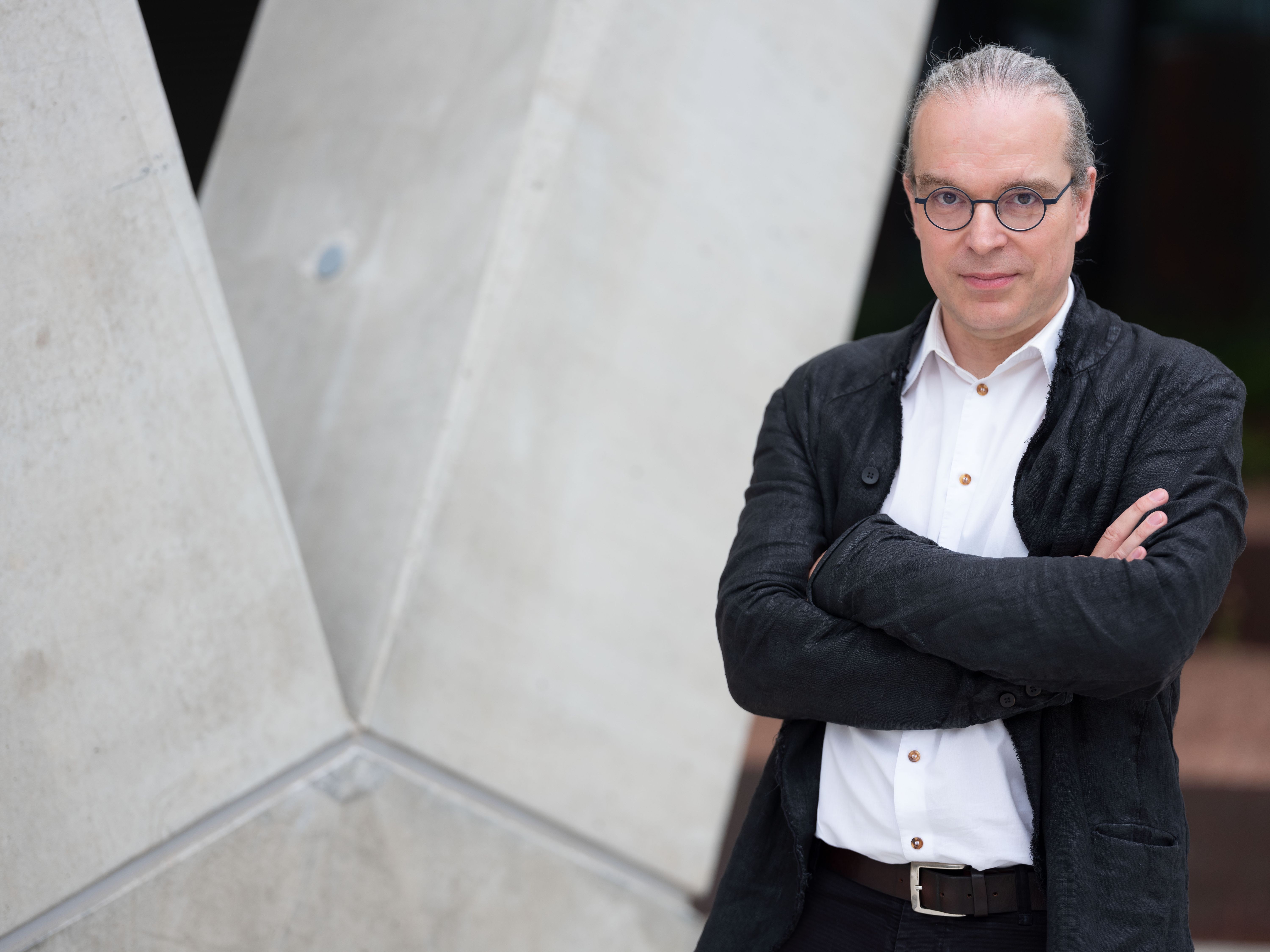Summer series on the Swiss Music Prize: No. 2 : Ensemble Nikel.
Vibrant and virtuoso interpretations of contemporary music form the unique DNA of Ensemble Nikel led by electric guitarist Yaron Deutsch (*1978). Nikel almost acts as a pop band and transcends the image of an often radically loud electro sound. Nikel is “radically contemporary”, according to the justification for the Swiss Music Prize 2023 awarded to the Basel ensemble. Gabrielle Weber met Yaron Deutsch, electric guitarist and founder of the ensemble.
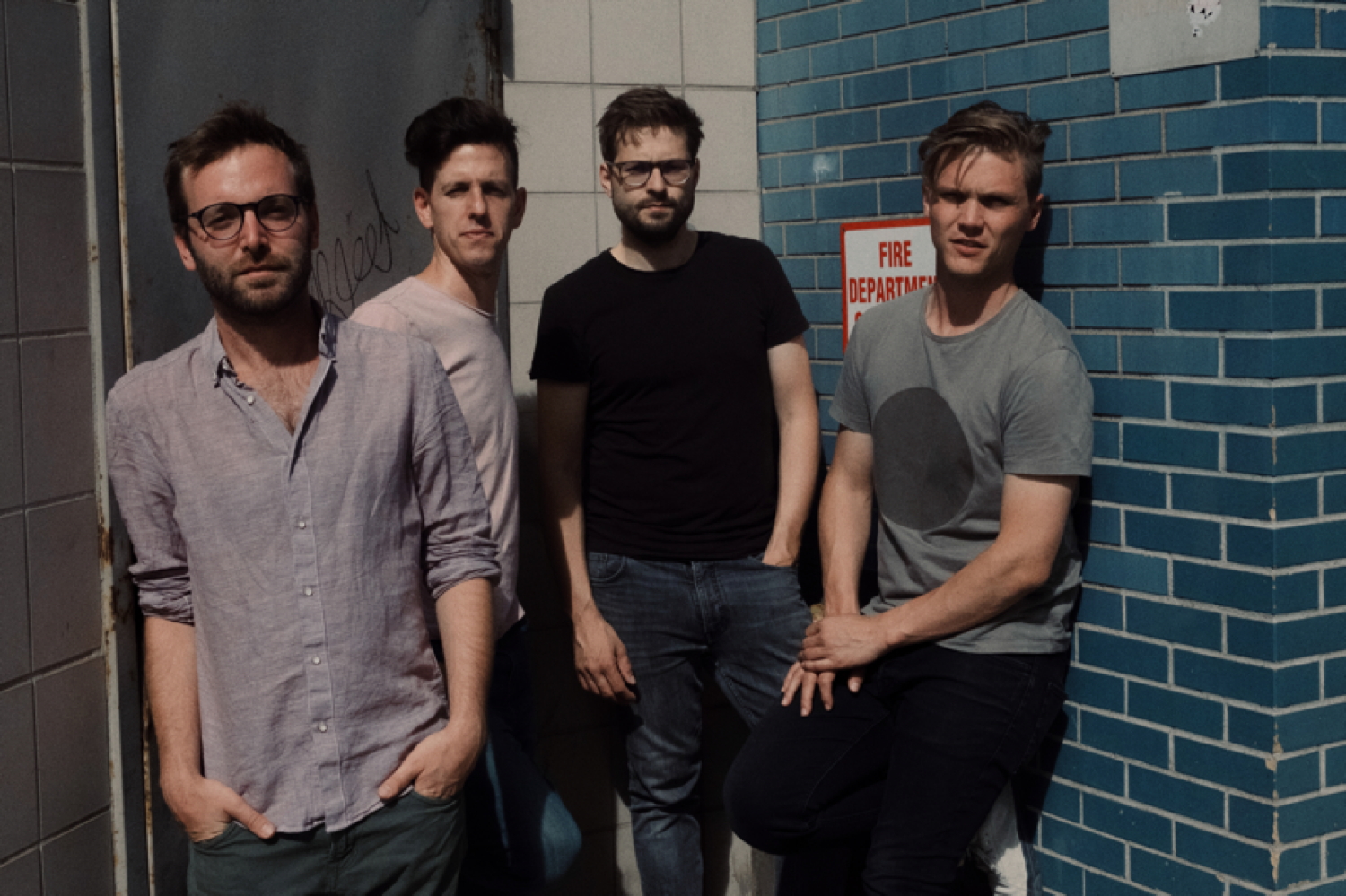
Gabrielle Weber
What does the prize mean for Nikel?
It is simply heartwarming and rewarding to be noticed and recognized for the work you do. Especially when there is no application involved, nothing prepared us for receiving the message from the committee, making it even more special. From the most pragmatic angle the award opens further doors for us and allows additional means to fulfil large scale plans we have for our future artistic growth.
An ‘alternative chamber music sound’ mixing electronic and instrumental sounds characterises the ensemble. Let’s talk about the beginning of Nikel: How did you find your way to contemporary classical music with the electric guitar – the combination is not obvious?
Playing the electric guitar, I was initially drawn to rock and jazz, but I felt like a ‘copy cat’ of an American culture that is not mine. Then, in 2005, I came across a piece by Luis Andriessen: ‘Hout’ (1991) for saxophone, electric guitar, percussion and piano. It felt like a ‘eureka’ moment. The piece mixes musical genres and elements in an uncomplicated way. I found a connection to my roots and the European classical music avant-garde felt like a sort of homecoming. It gave me a kind of direction in which soundscape I wanted to go.
With Hout we gave our first concert in Tel Aviv in 2006 and its instruments became the permanent line-up of Nikel. After a few changes, we have now been the regular line-up for about ten years: Brian Archinal on percussion, Antoine Françoise – piano, Patrick Stadler – saxophone and me on the electric guitar. We inspire each other.
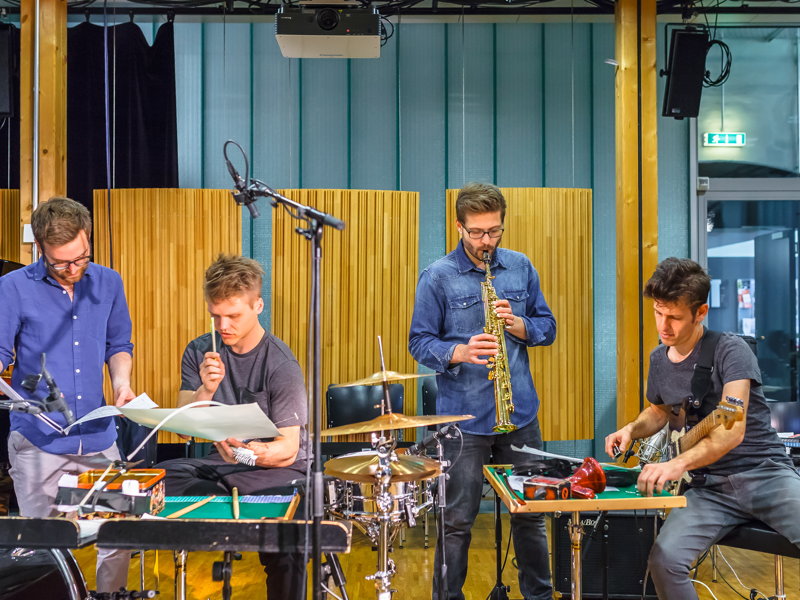
..and what does the name mean?
Three points: First, I didn’t want a music related name, then it should feature ‘metal’ as is one of our timbres and lastly, it is reminiscent of Israeli artist Lea Nikel and her abstract colour-intensive works. She was active in Paris and New York in the sixties and seventies and died in Tel Aviv in 2005.
It’s like water drops slowly gathering into an organism.
How come you settled in Switzerland?
The fact that three out of four members live in Switzerland has been decisive. I have always been a ‘missionary’ of non-nation related music-making and ensembles without national nor local definition: for me it’s all about working with the musicians I’m most interested in, who inspire me, no matter where they live. That’s how I got to Patrick Stadler in Basel, for instance. But our vision is international. It’s like water drops slowly gathering into an organism.
Starting from an invitation for a concert we get together. Our task as artists is to be fascinating, interesting and also good enough to create a demand. It’s about passion: as long as we are passionate, we exist as a group.
Your first performance in Donaueschingen in 2012 was legendary – this vibrant energy and raging virtuosity, for example in the premiere of Michael Wertmüller’s piece “Skip a beat”, is a lasting memory for me: How did the invitation come about?
In 2010 we performed at the Darmstadt Summer Courses. The new artistic director at the time was Thomas Schäfer and he wanted to present new voices in his first edition, so he invited us and our performance had a great echo. Shortly after, Armin Köhler, Donaueschingen’s artistic director, called and invited us to the festival two years later.
Michael Wertmüller, Skip a beat, Ensemble Nikel, world creation Donaueschinger Musiktage 2012
What did this performance do for Nikel?
Performing in front of a large audience with international resonance was one thing: a career ‘boost’: the familiarity with the international scene was very important for our growth. But Donaueschingen also enabled us to play four world premieres by four important composers who wrote especially for us and our instrumentation. We wouldn’t have had the financial means to commission such pieces ourselves. We have played these completely different pieces all over the world ever since. This mechanism continues by the way: when the festivals invite us, they commission pieces for us which we then keep in our repertoire. We always get involved in the selection process and suggest composers we are enthusiastic about and this enthusiasm is tangible during our performances.
Our memory tends to remember extremes
Nikel’s performances are known for an often radically loud electronic sound…
First of all, I have to reject this ‘loud’ ensemble definition as we also play many subtle pieces, quiet, tactile music. Probably our virtuoso quality leads to the impression: “the musicians can make walls shake…. “ (laughs…)
Masculine power, is not our thing. Our memory tends to remember extremes. But so much happens outside the extremes, in fact most…
We are like an ‘electrified string quartet’, an organism that works very well together and whose sound blends very well. We are able to finetune and find balance between loud and soft.
In 2017, Nikel released a comprehensive CD for the ensemble’s 10th anniversary – do the chosen pieces reflect the characteristic of the specific “Nikel sound”?
Quite hard to say, especially since the first decade was very formative so from a bird’s eye view the collection and curation of the pieces summarises our characteristics but once zooming in you notice that each work, though capturing predominant qualities of the group, still keeps our artistic character on the elusive end.
Stefan Prins, Fremdkörper 2, Ensemble Nikel 2010 (Decennial-Box).
You just got back from the Darmstadt Ferienkurse where you performed new pieces by Jennifer Walshe and Matthew Shlomowitz: what was the atmosphere like and how did it feel to be back at one of Nikel’s first important performance venues?
Darmstadt was fantastic: it was our fourth visit there. We played a piece we feel very comfortable with, both artistically and personally: an extraordinary collaboration of over two years with Matthew & Jennifer, who also accompanied us on stage. With two sold-out shows and a very positive review in the New York Times, it was a perfect premiere for the project.
Minor characters, Matthew Shlomowitz / Jennifer Walshe, Ensemble Nikel, world creation Ferienkurse Neue Musik Darmstadt 2022.
What’s next?
We have a new album (Radio Works) coming up with pieces commissioned and recorded by various European radio stations during the pandemic, including the Shlomowitz/Walshe piece followed by a world premiere of a four-piece cycle by composer Sarah Nemtsov for nikel and orchestra, due in Cologne and Essen with the WDR Symphony Orchestra. Our new season in Switzerland will begin in January 2024 with a world premiere by John Menoud.
Gabrielle Weber
Sarah Nemtsov, Tikkun pour orchestre, part 1 of the tetralogy, Ensemble Nikel, Camerata Ataremac, Ensemble Vertigo, conductor: Peter Rundel, Festival Les amplitudes 2022, SRG/SSR in-house production.
Kritik Darmstadt 2023: Seth Colter Walls, New York Times, 13.8.2023
A Decade, Decennial-Box 2017, 4 CDs mit Doku-DVD und Buch zum Ensemble.
Yaron Deutsch, Live in New York City, 2022
Yaron Deutsch, Jennifer Walshe, Matthieu Shlomowitz, Sarah Nemtsov, Peter Rundel, WDR Sinfonieorchester, Brian Archinal, Patrick Stadler, Thomas Schäfer, Armin Köhler
Schweizer Musikpreise 2023:
Grand Prix Musik: Erik Truffaz
Musikpreise:
Katharina Rosenberger, Ensemble Nikel, Carlo Balmelli, Mario Batkovic, Lucia Cadotsch, Sonja Moonear, Saadet Türköz
Spezialpreise:
Helvetiarockt, Kunstraum Walcheturm, Pronto
broadcasts SRF Kultur:
SRF Kultur online, 11.5.23: Trompeter Erik Truffaz erhält den Grand Prix Musik, Redaktion Jodok Hess.
Musikmagazin, 22.7.23, Carlo Balmelli: Ein Leben für die Blasmusik, Redaktion Annelis Berger, Musiktalk mit Carlo Balmelli (ab Min 9:40).
Musikmagazin, 17.6.23, Inspirationen mit offenem Ende: Die Vokalkünstlerin Saadet Türköz, Redaktion Florian Hauser, Musiktalk mit Saadet Türköz (ab Min 8:38).
Musikmagazin, 13.5.23, Schweizer Musikpreise 2023, Redaktion Florian Hauser, Musiktalk mit Katharina Rosenberger (ab Min 4:55)
neo-profiles:
Ensemble Nikel, Michael Wertmüller, Donaueschinger Musiktage, John Menoud, Antoine Françoise, Les amplitudes, Swiss Music Prizes


